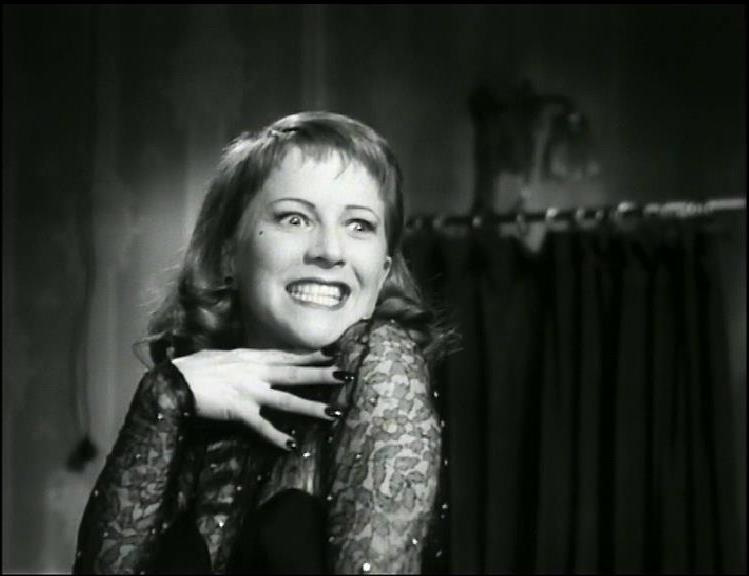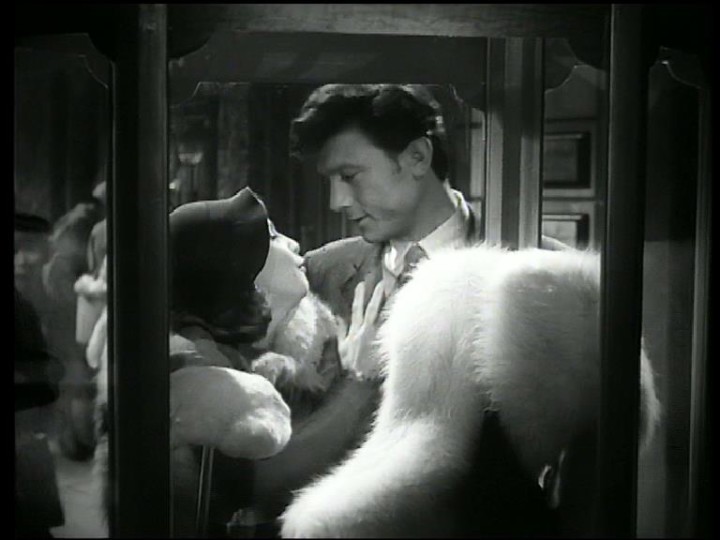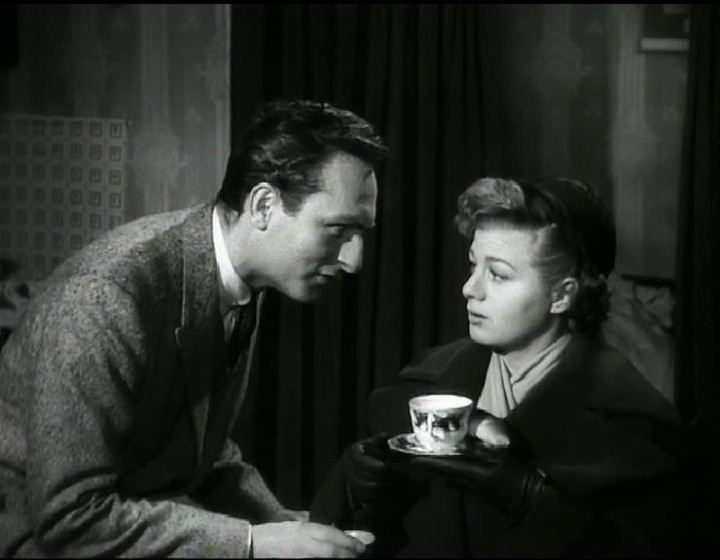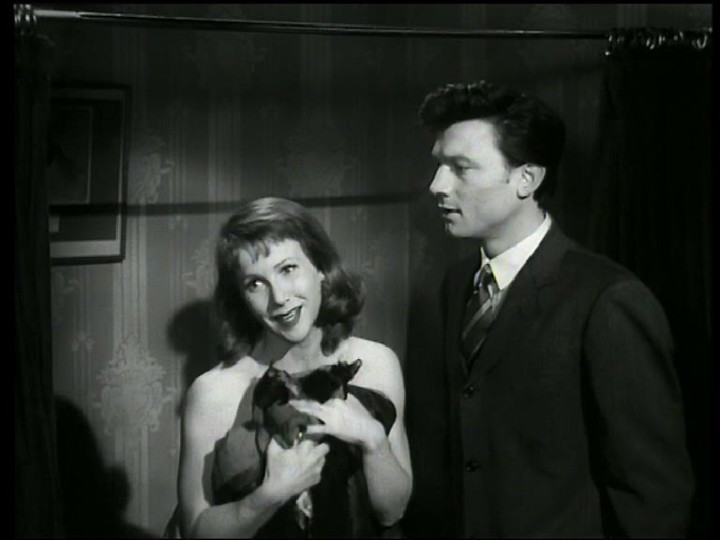Viewers expecting Henry Cornelius’ I Am a Camera (1955) to be much like Cabaret (1972) are apt to be a little disappointed — or at least disconcerted — by what they see. Yes, both are adapated from the same material — John Van Druten’s play and Christopher Isherwood’s Berlin Stories –and some of the characters are the same. The name of Laurence Harvey’s character here (as in the play) is Christopher Isherwood and has not been more safely fictionalized. And, of course, I Am a Camera isn’t a musical (the one number is reason enough to be delighted it isn’t). But the differences go much deeper. The tone is completely different. This is more a cheekily amoral sophisticated comedy with occasional forays into drama. While it’s referred to only two scenes directly have anything to do with the rise of the Nazis. Dramatically, the Nazis only factor in as concerns the fact that Anton Diffring’s character is Jewish. Mostly, the film focuses on Isherwood’s relationship with Sally Bowles (Julie Harris reprising her stage role), who is here more of a standard issue “dizzy dame.”
Your fondness for the film will depend a great deal on whether you find Sally an amusingly confused young lady or an annoying borderline sociopath. My own response is somewhere between the two. There are moments in the film where the ditsy charm works. And then there are moments — the whole Russian restaurant scene where she spends money Isherwood doesn’t have is a key one — when my basic response was the feeling that she needed a good shaking. What rescues that scene is the way Sally solves the problem she’s created — and the idea it conveys that she knows what she’s doing much more than she lets on. What rescues it at other times is Harris’ undeniable — but somewhat thin — charm.
Much of the film — especially the scenes with boorishly manic American millionaire, Clive (Ron Randell) — is played as very broad comedy. It can be fun — and it’s certainly fun to catch Tutte Lemkow as an eccentric quack “electro-therapist” and Patrick McGoohan as an equally specious “water therapist” — but it’s also a little tiresome and at odds with the quieter tone of most of the movie, which is closer to ersatz Lubitsch than anything else. Still, it’s an interesting film that caused a bit of a fuss in the U.S. over its morality, especially where the Catholic Legion of Decency was concerned. (This may account for why it was released by the low-rent Distributors Corporation of America, which mostly handled cheap horror/exploitation fare before it gave up after Plan 9 from Outer Space in 1959.) One of the more intriguing aspects of I Am a Camera is that it makes no attempt to make Isherwood straight (or at least bisexual) as in the other incarnations. Oh, it’s coded — references to “not the marrying kind” and a male torso etching over his bed — but Isherwood’s (who was still closeted at the time) gayness is pretty evident.
The Hendersonville Film Society will show I Am a Camera Sunday, Sept. 7, at 2 p.m. in the Smoky Mountain Theater at Lake Pointe Landing Retirement Community (behind Epic Cinemas), 333 Thompson St., Hendersonville.







Before you comment
The comments section is here to provide a platform for civil dialogue on the issues we face together as a local community. Xpress is committed to offering this platform for all voices, but when the tone of the discussion gets nasty or strays off topic, we believe many people choose not to participate. Xpress editors are determined to moderate comments to ensure a constructive interchange is maintained. All comments judged not to be in keeping with the spirit of civil discourse will be removed and repeat violators will be banned. See here for our terms of service. Thank you for being part of this effort to promote respectful discussion.